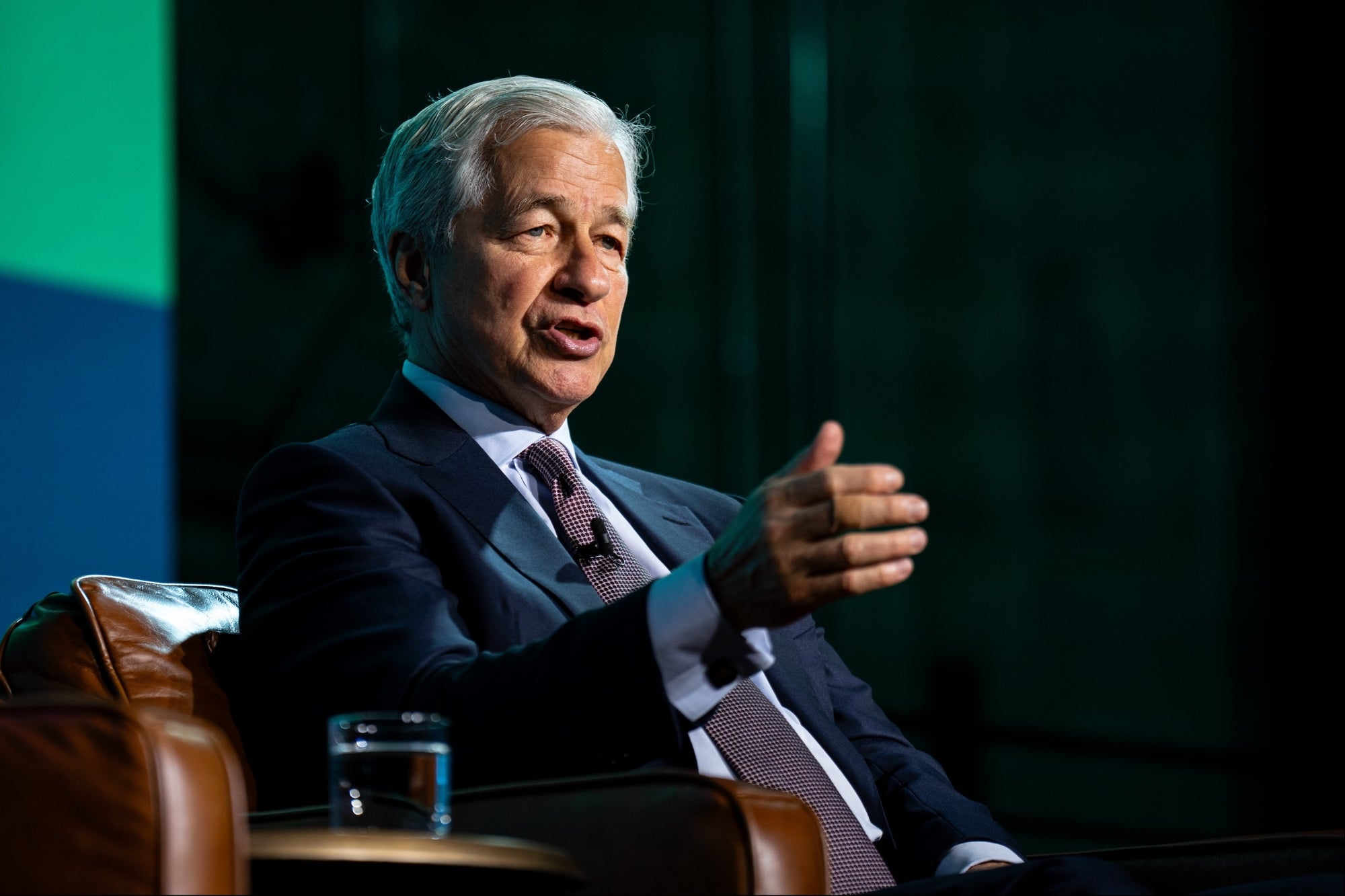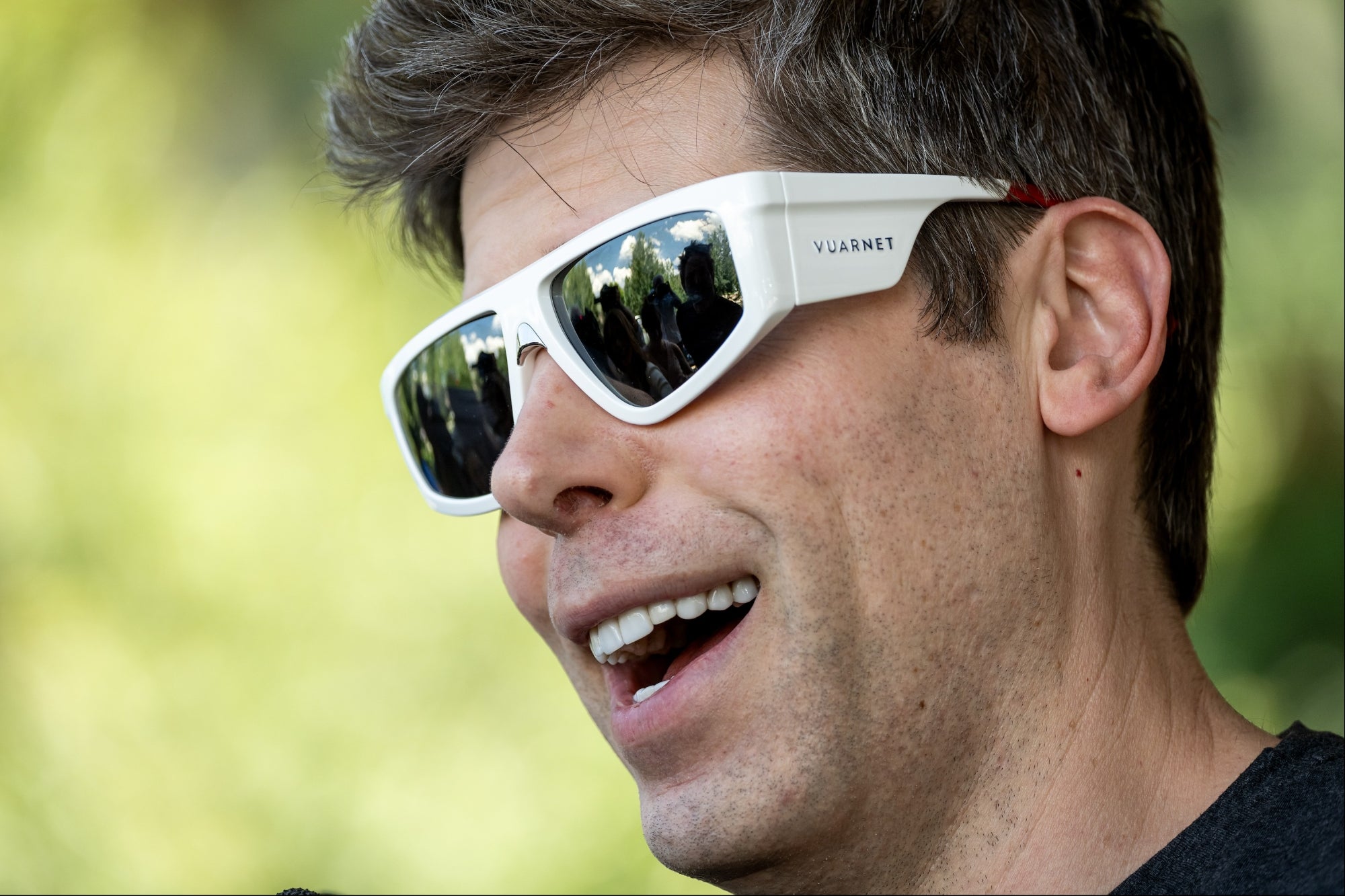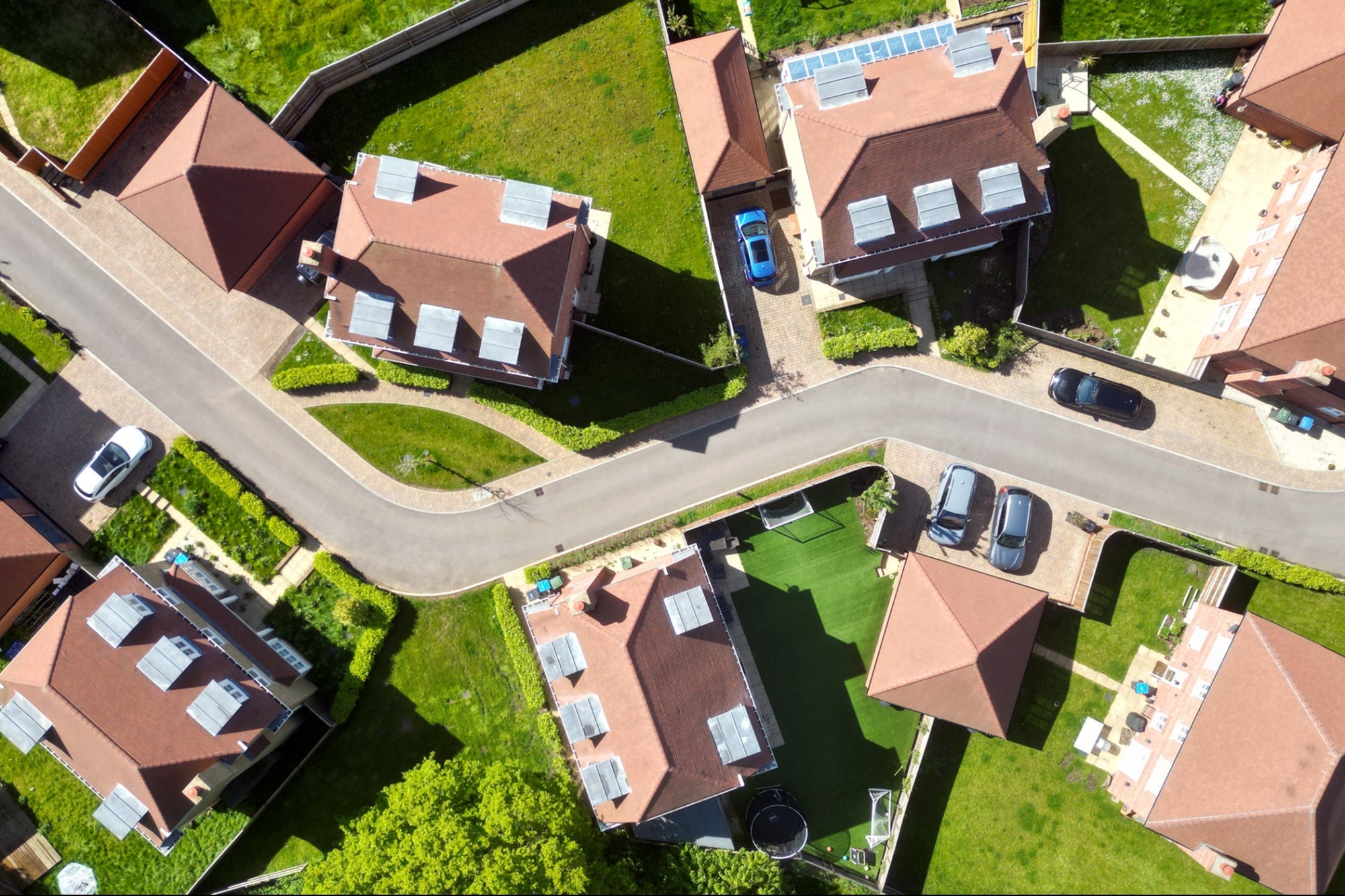How Toyota and Lexus UAE's Jacques Brent is Leveraging Vehicle Electrification to Build Greater Brand Trust As the Managing Director for the UAE operations of two of the most trusted brands in the world –Toyota and Lexus– Brent sees the push for vehicle electrification and AI integration as a means to solidify a legacy that has spanned nearly nine decades.
Opinions expressed by Entrepreneur contributors are their own.
You're reading Entrepreneur Middle East, an international franchise of Entrepreneur Media.
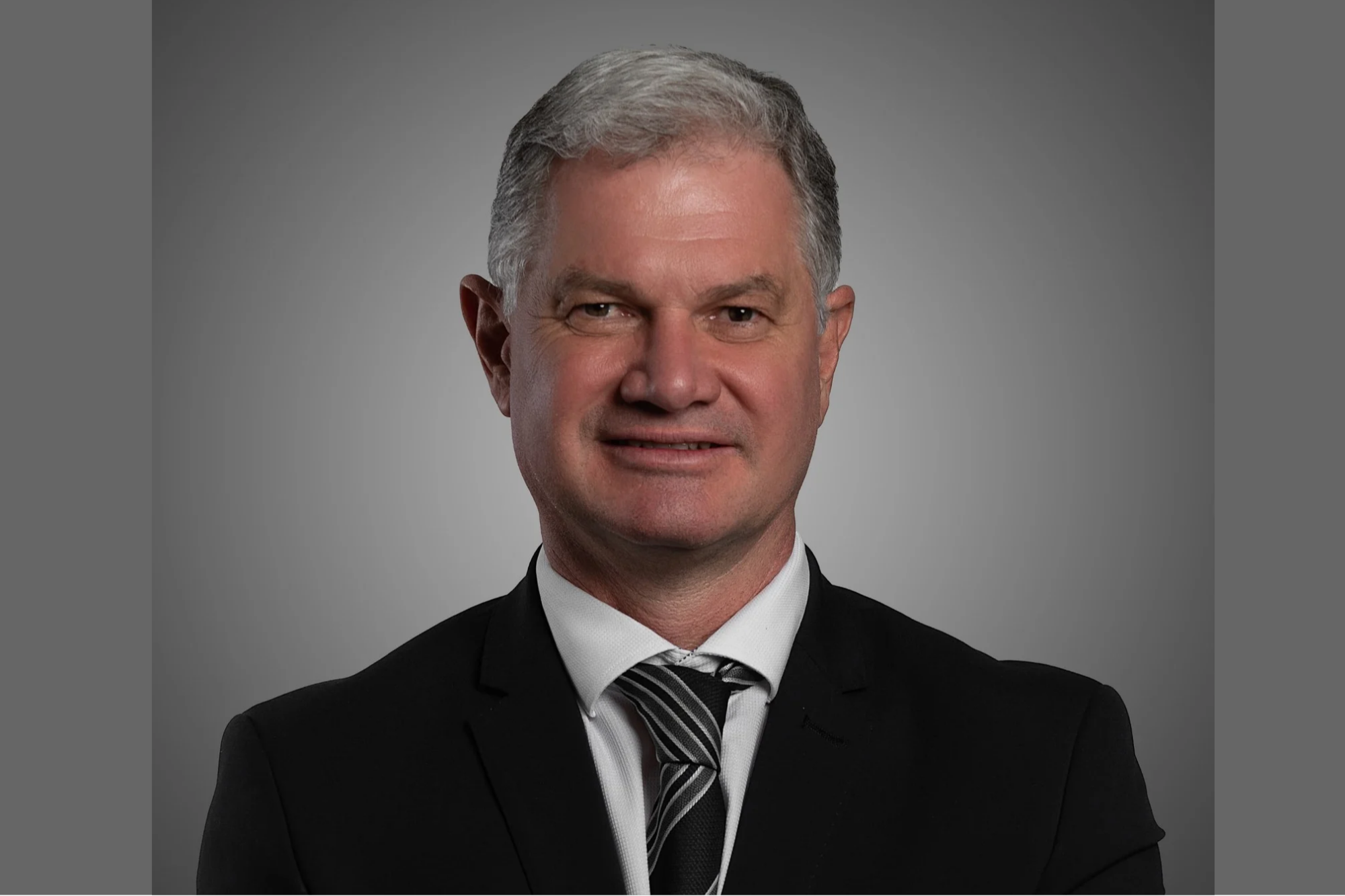
"Legacy is earned, but it also needs to be nurtured and protected every day–for us, that means blending time-tested reliability with future-forward innovation." If Jacques Brent's leadership style had to be encapsulated in one quote, it would perhaps be this one. Having taken on the mantle of Managing Director of Toyota and Lexus UAE, Brent has been at the helm of both automotive giants' regional operations since early 2023.
"While protecting an established legacy is crucial, the automotive industry is undergoing massive change, with more expected in the next decade than in the last 30 or 40 years," he says. "As such, innovation is not contradictory to the brand's values but it is an evolution. I believe in pushing for innovation while respecting the established culture. My team is challenged to do things differently and challenge the status quo, with my support and guidance. Innovation involves challenges and risks, including resistance to change, where new ideas face skepticism. But learning happens by making mistakes, and these are often the biggest lessons. I prefer that my team not make the same mistake twice. In a fast-moving environment, the ability to react quickly is important. A leader's role is removing bureaucracy to make it easier for the operational teams to function. While strategy and ideas are important, I believe this should translate into action on the ground."
The urgency in Brent's statements isn't without reason. A global push for the production of more electric vehicles (EVs) worldwide has meant that automotive brands across the board have had to adapt to this new demand. The International Energy Agency's "Global EV Outlook 2025" shows that electric car sales topped 17 million worldwide in 2024, rising by more than 25%. In October 2024, American research and advisory firm Gartner forecasted that 85 million EVs will be on the road by the end of 2025, indicating a 33% growth compared to last year. For now, much of this growth is expected to be led by China (58%) and Europe (24%). But that isn't to say that this shift hasn't trickled into the Middle East– it has, and Brent's leadership has ensured that both Toyota and Lexus are at the forefront of driving this change forward.
 Image courtesy Al Futtaim Automotive
Image courtesy Al Futtaim Automotive
"The UAE's automotive market is unique in its expectations of both performance and purpose," Brent notes. "Consumers here value innovation, reliability, and increasingly, sustainability. It's also a digitally connected population that expects technology-led experiences across every touchpoint: from pre-purchase research to in-car features. At Toyota and Lexus, we are responding by embedding artificial intelligence (AI)-driven features, advanced driver assistance systems, and seamless connectivity into our product strategy. We're balancing our heritage of reliability with a bold push into electrification, ensuring we stay relevant to evolving expectations. The market is discerning, fast-moving, and purpose-driven. These are qualities we're matching through smart mobility, hybrid leadership, and localized innovation."
Serving as a pillar of support in this push for greater electrification, and indeed sustainability, is Al Futtaim Automotive– both brands' exclusive distributor in the UAE and other GCC countries. "At Al-Futtaim Automotive, we've committed to achieving carbon-neutral manufacturing by 2035, and we're on track to cut emissions across our operations by 50%," Brent declares. "In the UAE, we've introduced a growing portfolio of hybrid and electric models, with plans for further expansion aligned with the country's Net Zero 2050 vision. We are looking to develop this entire new EV ecosystem in a holistic way, and pioneer new mobility services to support the sustainable transition."
Brent then reveals that by as early as 2030, Al-Futtaim Automotive has plans to deliver 50% new energy vehicles (NEVs) –vehicles that use non-traditional/non-petroleum energy sources and are designed to reduce emissions and reliance on fossil fuels– and install 10% of its charging stations in the UAE. "We are also making our showrooms and service centres more sustainable," Brent continues. "We are building a comprehensive EV ecosystem from electric vehicles to a truly immersive virtual reality (VR)-based automotive showroom, and cutting-edge electric mobility training technologies for EV technicians. We're also actively investing in infrastructure, aiming to install 10% of the UAE's EV charging stations. These steps are about building confidence in greener mobility, paving the way for widespread electrification."
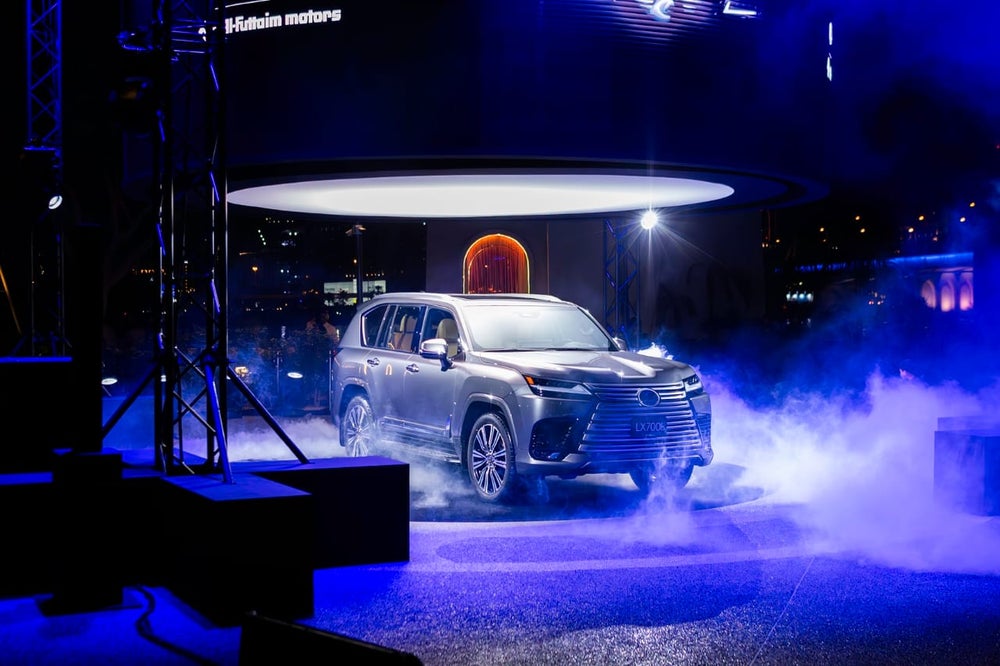 Brent led the unveiling of the Lexus LX700h in Dubai—Lexus's first electrified LX—positioned as "sustainable luxury." Under his leadership, 40% of Lexus sales in the UAE are hybrid models. Image courtesy Al Futtaim Automotive
Brent led the unveiling of the Lexus LX700h in Dubai—Lexus's first electrified LX—positioned as "sustainable luxury." Under his leadership, 40% of Lexus sales in the UAE are hybrid models. Image courtesy Al Futtaim Automotive
But in all of this lies an imperative question: are the UAE and wider region's consumers ready to embrace the EV storm? "The shift towards environmentally conscious purchasing in the UAE has been accelerating," Brent notes. "We see this especially among millennials and Gen Z, who are increasingly prioritizing sustainability, innovation, and brand values when making high-investment decisions like buying a car. At Toyota and Lexus, we have been tracking this evolution and leading it. Our approach combines advanced data analytics, real-time consumer insights, and a deep commitment to sustainable mobility. From our expanding range of hybrid and electric vehicles to AI-powered in-car experiences that enhance efficiency, every innovation is designed to meet the expectations of a more responsible, tech-savvy customer base, without sacrificing performance or the premium experience both brands are known for."
Here, however, Brent offers some important transparency in understanding the regional driver's attitudes. "While the most rewarding part of this journey has certainly been leading the transformation of two legacy brands into future-ready, technology-enabled mobility partners, one challenge has been navigating consumer perceptions around electrification, particularly range anxiety and EV readiness in the UAE's climate," he shares. "We addressed this by positioning hybrids as a bridge to EVs, backed by education, test drive initiatives, and localized product engineering. What stands out is the passion of the team and the willingness of customers to embrace new ideas when they're backed by trust and value. That trust is something we never take for granted."
Indeed, it is this deeply ingrained brand trust that Brent alludes to when asked how he manages the responsibilities of not just leading two automotive giants but also injecting new ideas into them. "It's honestly a privilege to lead brands with a significant history and reputation for high quality, durability, and value in the region," he says. "Toyota has a deep legacy in the UAE, having been here since the mid-1950s and iconic status, even being synonymous with early development on Sheikh Zayed Road. Leading such brands comes with a lot of pressure, but the advantage is a well-established customer base. The core attributes of Toyota and Lexus products – their durability, quality, and reliability – are deeply ingrained in customer perception, leading to the belief that if you want a vehicle to do a million kilometers, "it should be a Toyota". Trust is built through familiarity with the product and belief in what it delivers. My role involves not only managing the product side but also ensuring that the customer service experience matches the quality of the vehicles."
 Image courtesy Al Futtaim Automotive
Image courtesy Al Futtaim Automotive
Brent's leadership at Toyota and Lexus UAE, however, isn't his first rodeo in the world of automotives. Prior to his current role, he enjoyed a highly successful 24-year career with Ford, starting at the American automobile manufacturer's South Africa operation in 1995, which eventually culminated in a role as Global Director, Product Marketing at Ford's headquarters in Dearborn, Michigan. "My first experience in Asia Pacific came with a move to Ford's Shanghai office to take on the role of Executive Marking Director for the Asia Pacific and Africa region, following a successful term as Vice President of Marketing, Sales and Service for Ford Motor Company of Southern Africa," he shares. "I served as the President of Ford Middle East and Africa, leading the company's operations across 70 markets at the newly launched business unit headquartered in Dubai. I was deeply involved in Ford's transition to electric vehicles, an experience that has stood me in good stead while negotiating Al-Futtaim Automotive's sustainable mobility strategy. I have worked globally, including in China, the US, the Middle East, and South Africa. My career journey has involved taking opportunities and capitalizing on them."
Indeed, it has been this ability to break into new areas of innovation that has defined his tenure at Toyota and Lexus as well. "Our roadmap is clear: accelerating electrification, deepening AI integration, and localizing innovation," Brent says. "Smart mobility is building intelligent systems that anticipate user needs, optimize performance, and elevate safety. We're investing in AI-powered platforms, such as Toyota Safety Sense, and connectivity features that sync with our customers' digital lives. In parallel, our vehicle lineup is evolving with hybrids, BEVs, and eventually hydrogen-powered models, all tailored for the UAE's unique climate and infrastructure."
It is with this sense of purpose that Brent hopes that both brands now become "favoured partners in mobility, sustainability, and smart living." "Looking to the future, we're expanding our AI-led product strategy, accelerating electrified powertrains' rollouts, and deepening customer personalization across every touchpoint," he says. "Personally, I remain committed to servant leadership: listening to our team, reducing friction in operations, and enabling bold ideas. The next chapter is about transformation; with legacy as our foundation and innovation as our path forward."



